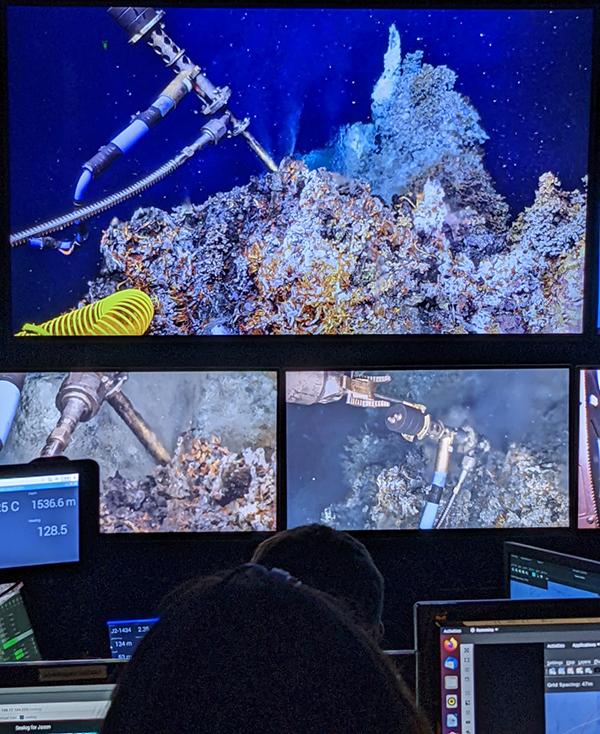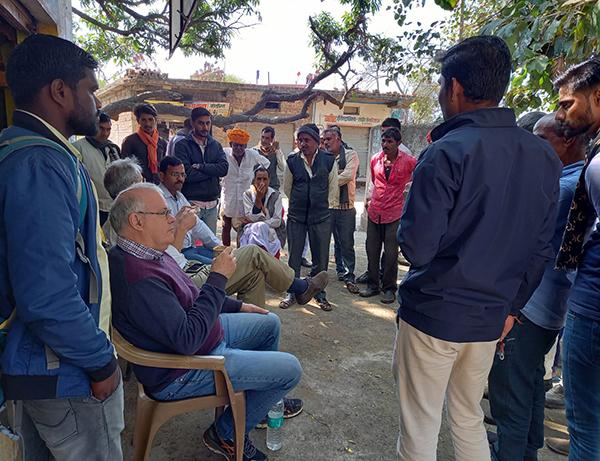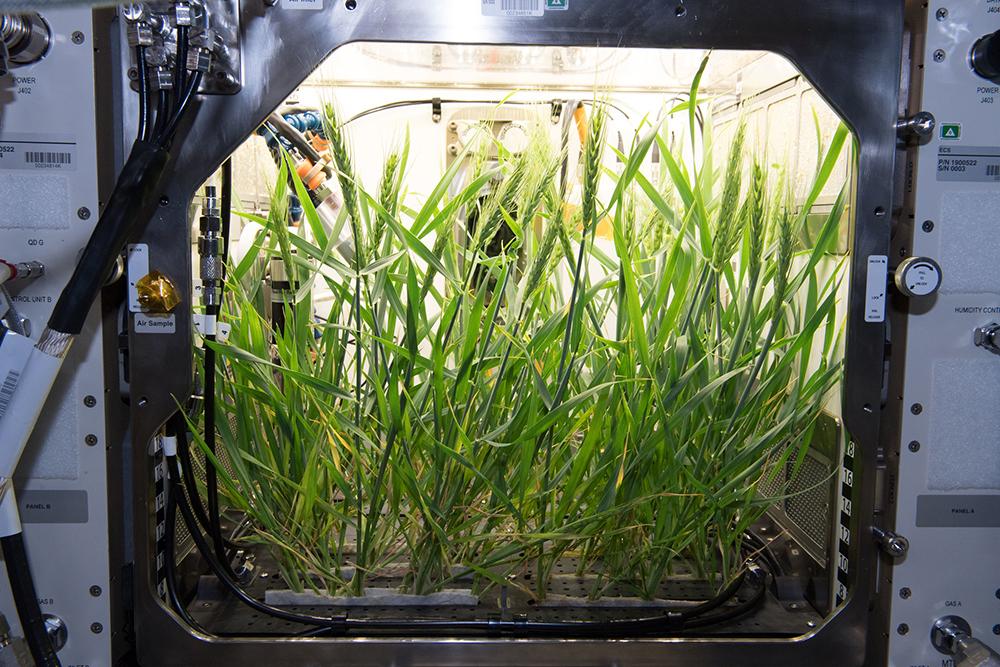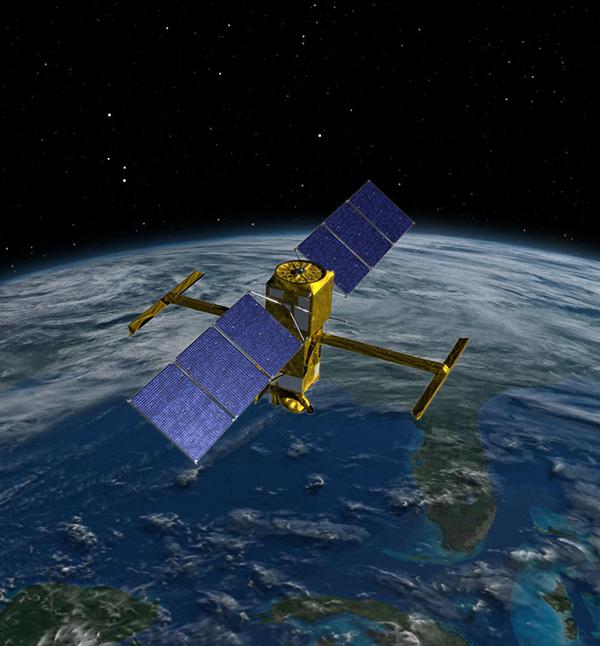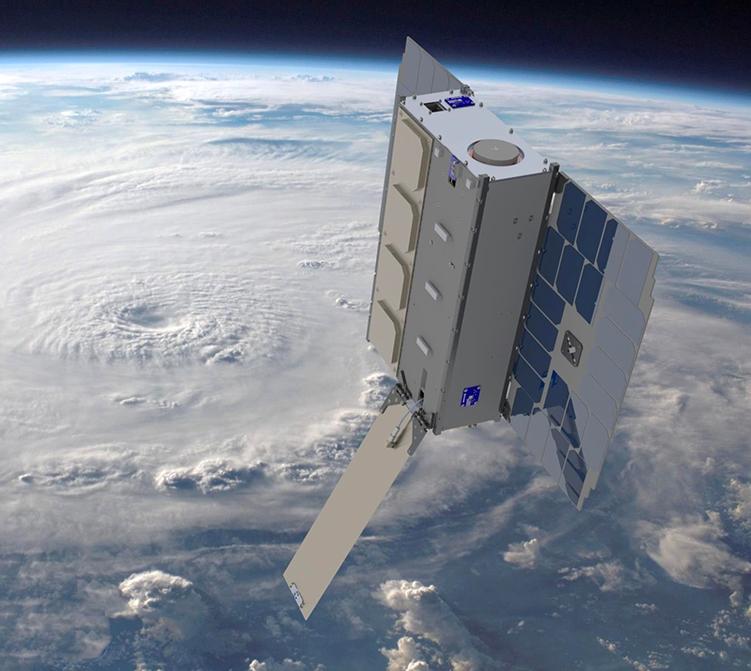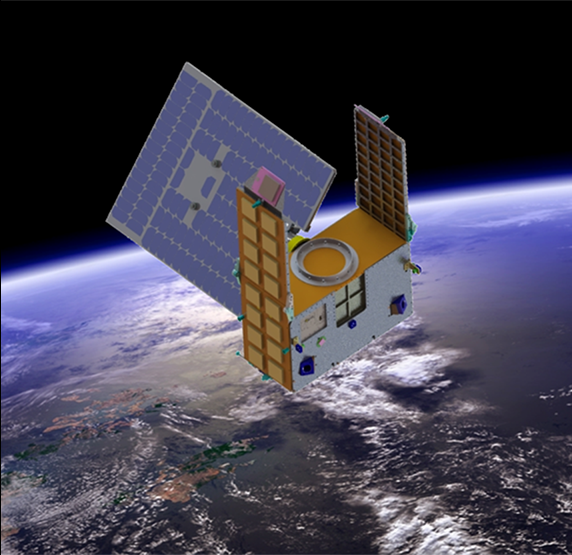No Moving Parts
Shaving off weight on a spacecraft translates into savings on launch costs. There is an increasing demand for satellites that are cheaper, better, and faster to produce—all factors in space technology that give more service for the dollar spent.
Research International, Woodinville, Washington, has created a solid-state micromachined pump for cooling electronics in space. The work was made possible through NASA Small Business Innovation Research (SBIR) contracts, awarded to the firm from Johnson Space Center and the Lewis Research Center. Other functions for the pump include circulating heat transfer fluids, and monitoring fire and gas hazards aboard naval warships. In the NASA-sponsored work, pumping action was based on the interaction of certain fluids with impressed electric fields.
Programs that demand micromachining involve a number of factors: Complex fluid flow structures etched in refractory glass; multilayer films deposited to provide corrosion resistance over years of operation; thin fixtures made from epitaxial silicon using etch-stop techniques; and the perfection of hermetic sealing techniques.
Micromachining is but one focus area of Research International. Significant in-house capabilities are in place for custom instrumentation, optical sensing, and thin-film development.
Commercial applications for these technology thrusts are many. They include detection of toxins and pollutants in coal mines, as well as an early warning smoke detector for industrial applications. The prospects for using fiber optic probes to determine the air content of freshly-poured concrete are also under review by the group.
Research International has incorporated the micromachined, no-moving-parts pump into a four-channel, solid-state fluorometer. A patent is pending for this product, MANTIS™, a tightly packaged, portable, fully-automated immunoassay system.
There is currently a need for new technologies that are designed specifically for the high-sensitivity field monitoring of toxins, explosives, and chemical contaminants. Some of the most promising strategies for carrying out such strategies are based on studying the immune and protective responses of animals and humans.
The solid-state fluorometer system integrates optics, electronics, and software into an all-in-one way to monitor the progress of immunological reactions. Using this system, toxins such as Y. Pestis have been detected at levels below one part per billion from samples of a few hundred microliters.
Research International's micromachining methods are being used for the construction of miniature fluidic devices for use in medical drug delivery. The high-tech company is on contract with NASA to develop a rapidly responding fiber optic-based hydrogen gas sensor. This is based on work performed on interferometric devices that reversibly change optical properties via an internal chemical reaction.
In another NASA program, Research International has developed a novel optically-based compact particulate monitor that can be used for the detection of smoke or other airborne matter in the space shuttle.
MANTIS is a trademark of Research International.
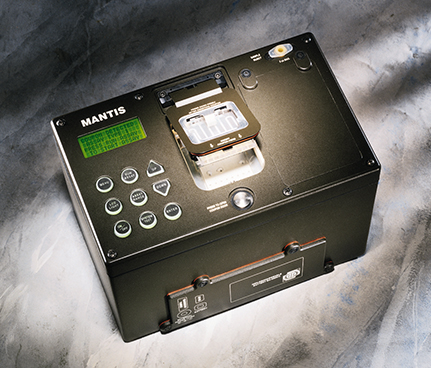
NASA-supported research helped in the creation of micromachined pumps. This appliance is integral to a number of Research International products, like this highly-sensitive portable unit that detects toxins, explosives, and chemical contaminants.






